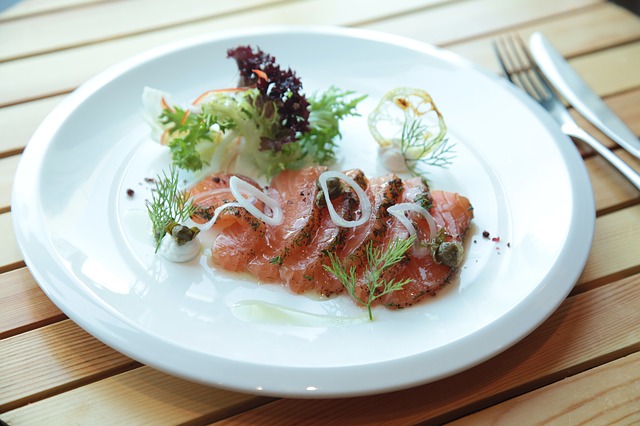Nutritional Therapist Henrietta Norton shares her top tips on how to eat will this festive season by tweaking a few things.
Simple, healthy swaps
The traditional Christmas meal is in fact very healthy but it’s the little ‘treats’ that surround it that tend to add that festive ‘heaviness’. Nuts are in prime season at this time so choose walnuts slowly baked with rosemary & a pinch of rock salt instead of crisps or try strips of smoked trout or avocado on rye bread instead of smoked salmon & blinis. Instead of mulled wine try a gin toddy. This makes the perfect after dinner sipper. Lower in calories and sugar, it also combines the warming spices and remedial properties of cinnamon, cloves and lemon zest
Start the day on the right foot
Start the day with a good quality protein breakfast. This will set you up for the rest of the day, regulating appetite and reducing those temptations for the sugar-laden goods on offer. It will also support the body’s production of useable energy avoiding the mid afternoon slumps. The options I give my clients are poached eggs on steamed spinach, or poached salmon and avocado on spelt or sourdough bread or greek yoghurt with homemade blackberry and spice compote.
Don’t be tempted to skip meals
It is very tempting to start skipping meals to cut down on calories. This is possibly THE WORST thing you can do – my clients call me a stuck record on this. Avoid all low calorie meals, they are often high in sugar and salt and low in nourishment meaning you just feel hungry later on. Instead choose small, regular meals, eating every 4 hours and always including a source healthy fats (such as nuts, seeds, oily fish, olive oil/flaxseed oil, avocadoes) and a source of lean protein (pulses, fish, nuts, seeds, turkey, chicken, game).
Support your digestion
Starting the day with a mug of warm water with a capful of apple cider vinegar with a little honey has also been shown to support digestion, most especially of fatty, heavier foods. Supporting liver function with foods such as beetroot, artichokes, cabbage, brussel sprouts, chicory & broccoli can improve the release of bile, an essential element in the digestion of fatty, rich foods. Taking a supplement to specifically support liver & gut such as our C&R will also support this process.
Easing the pressure
Known as nature’s tranquiliser this powerful mineral is responsible for over 300 enzyme reactions in your body and is leached by factors such as alcohol, stress, coffee, ant-acids and contraceptive pill. Sleeping issues, anxiety and menstrual cramps have improved with the use of magnesium. Nourish yourself with magnesium rich foods including pumpkin seeds, almonds, walnuts, wheat germ, oats, millet, buckwheat, avocado, barley, brown rice, kelp, collard greens, kale, figs and dates or support yourself with a good Food-State supplement. A study published in the journal Gastroenterology earlier this year demonstrated the protective affects of probiotics on stress related digestive disorders, such as IBS. The researchers revealed that stress alters the level of beneficial flora in the gut by inducing intestinal inflammation that often leads to cramping and diarrhoea. However taking probiotics reversed the effects.






